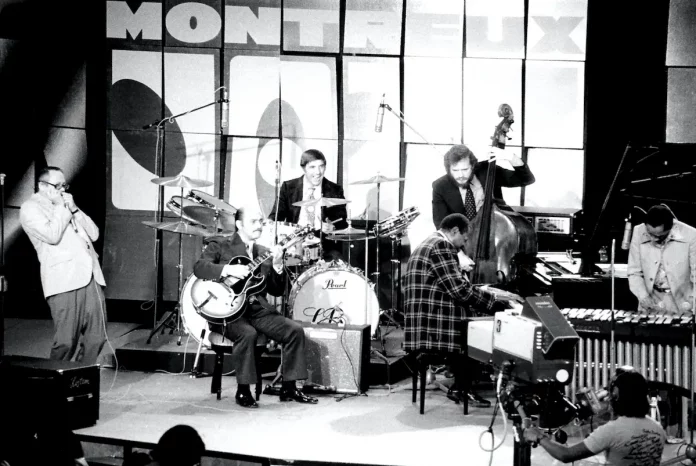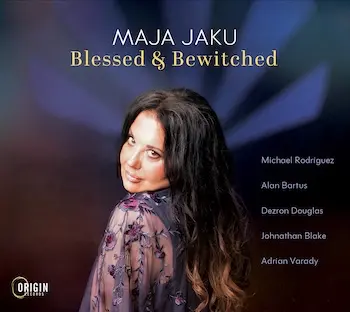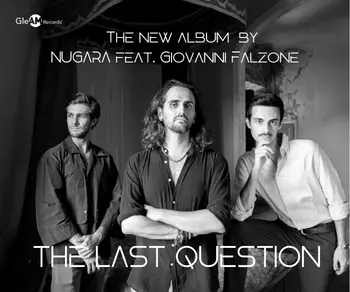Asked by jazz critic, writer, and pianist Len Lyons how his recording and performing career got started, Oscar Peterson replied: “It was Norman Granz, Jazz at the Philharmonic, and the concert at Carnegie Hall in 1949.” Throughout his subsequent long and illustrious career, OP was guided and influenced by the man who became his friend and mentor. At first and even second sight and hearing, these six sonically “restored” albums recorded between 1952 and 1959 (on Granz’s Clef, Norgran and Verve labels) are still impressive – although nowhere near his 70s and 80s more extended studio and live performances. All but one of these original LPs feature Oscar and his groundbreaking early trios – with Ray Brown and Ed Thigpen or Barney Kessel.
With the growing popularity of concept and “dedicated” albums (pioneered by Frank Sinatra in the 1950s), entrepreneur Granz persuaded Oscar to record a series of “Songbooks”. Obligingly, OP recorded 10 songbook albums from 1952 -1954, and nine more in 1979. These included the Irving Berlin, Jerome Kern and Harry Warren albums. The Sound Of The Trio “live” sessions feature Ray Brown and Barney Kessel, but in 1959 Ed Thigpen replaced Kessel. Unfortunately, these six reissues have been hastily reproduced, with “bonus” tracks not on the original albums, and minus many that were. Sleeve notes (original or new) are generally sparse or uninformative. Completists and newcomers should check the reference books to ascertain the required details.
The Sound Of The Trio (Jazz Wax 4547)
The Sound Of The Trio is a sampler taken from a four-volume LP/CD set, The Oscar Peterson Trio: The London House Sessions, recorded in Chicago in 1961. They performed magnificently, partly in response to an appreciative audience. Tricotism (11.10) and Kadota’s Blues (11.06) are both Peterson compositions and have extended and engaged treatments. Alyn Shipton cites Oscar Pettiford’s Tricotism as a prime example of the group’s interplay, with Oscar “introducing a figure for piano and bass that precedes [the] intricately composed bass theme, and then passing the lead to and fro between bass and piano with great dexterity”. Sadly, the packaging of the CD set enjoys the dubious distinction of having the worst artwork (sic) ever.
A Jazz Portrait Of Frank Sinatra (Jazz Wax Time 771662)
A Jazz Portrait Of Frank Sinatra contains two additional tracks from these 1969 Paris and Hollywood recordings. In contrast to the London House sessions, these renditions of Sinatra’s then currently popular hits are all less than four minutes long in a routine and unimaginative outing by the same trio. But Oscar had genuine (and reciprocated) admiration and affection for Sinatra and is quoted as saying: ”For years I’ve been thrilled by his singing and respected the taste that goes with his singing….certain tunes are inextricably linked with Sinatra….This album is not only a tribute to (him) but also an emotional interpretation of the feelings I get when I hear him.”
Plays The Richard Rodgers Songbook (Spiral Records 8105238)
Entertaining – but not essential listening, Plays The Richard Rodgers Songbook is more rewarding. A Downbeat review awarded it four stars, but noted that even Oscar was unable to make anything other than “cocktail sounds” out of Manhattan. But it properly commended a hard-swinging Surrey With The Fringe on Top and Lady Is A Tramp. This reissue also has a pleasant bonus track – Thou Swell – where Barney Kessel (g) replaces Thigpen (d), recorded in LA in 1952.
Plays The Gershwin Songbook (Pan Am Records 9152263)
An initially ruminative It Ain’t Necessarily So opens Plays The George Gershwin Songbook, recorded in Chicago in 1959 and here with three bonus tracks made in Los Angeles in 1952, Kessel again substituting for Thigpen. Overall, the mood is gentle and melodic, with OP respecting George and Ira’s vocal and instrumental preferences. In his liner note to the original album, Lawrence D. Stewart commended Oscar for the way “he cuts out everything but the straight flowing melody of a Gershwin tune and then uncovers harmonies to emphasise Gershwin’s constant contemporaneity”. A Foggy Day and Love Is Here To Stay are fine examples. Moreover, all of the 16 titles received brief (but not perfunctory) treatments. Somebody Loves Me, Strike Up The Band and I’ve Got A Crush On You are welcome additions to Peterson’s discography and the complementary and propelling talents of Kessel and Brown.
OP was a lifelong Ellingtonian. In his autobiography A Jazz Odyssey, Peterson relates that at the close of a JATP tour he was asked by Duke to play “something” for him on the piano. He chose Lady Of The Lavender Mist (“one of my favourite Ellington pieces”). When Duke queried the title of the piece Oscar replied “Duke, that’s one of your tunes!” Even when he played it again, Duke failed to recognise his own composition. Oscar later reflected that Ellington’s music “centred on anticipation and new experience… His paramount concern was always about what he would achieve tomorrow.”
Plays The Duke Ellington Songbook (Pan Am Records 9152287)
Oscar’s own tribute to the Duke was Plays the Duke Ellington Songbook, recorded in Chicago in 1959. Completed by Brown and Thigpen, the trio fashioned miniature versions of such Ducal classics as Don’t Get Around Much Anymore, In A Mellow Tone, and Things Ain’t What They Used To Be. The trio’s 1952 version of Take The “A” Train appears on this reissue as a bonus track. It is highly recommended.
In A Romantic Mood: Oscar Peterson With Strings (Jazz Wax JWR4577)
Last and least, we have the 1955 LP In A Romantic Mood: Oscar Peterson With Strings [attached]. Surrounded by a large orchestra conducted by Russell Garcia, Oscar offers “pretty” and thankfully short – with the exception of Laura (at 6.25) – renditions of titles such as Black Coffee, The Boy Next Door and I Only Have Eyes For You. Yet another “bonus track” – Johnny Mercer’s Echoes – is taken from a 1957 recording of Oscar with orchestra and strings, again conducted by Garcia and including Herb Ellis and Ray Brown plus an “unknown vocal group” in Los Angeles.
Norman Granz must assume some responsibility for having produced the original session. Oscar himself is quoted on the (unsigned) original sleeve note as saying “It’s like this. It’s as though I’m down to the essentials musically. There’s no strain and nothing superfluous. The strings give a soft, pleasant background and the rest is up to me – to give the tune its full worth and to pay my respects to the melody, which is the reason the song was written in the first place.” Better characterised as “mood music”, this disc this should be avoided. One unlucky customer’s charitable verdict was “OP fantastic – strings terrible – too squeaky – would like to hear it [the CD version] minus strings.” For the record (no pun intended) I didn’t like hearing it even on “180 Gram Pure Virgin Vinyl”.
None of these albums was ever likely to win musical Oscars for Oscar. But although many won’t agree, his outstanding and superlative best was still to come. On the Pablo concert and studio recordings, on the MPS Black Forest Exclusively For My Friends series and on the Telarc “live” recordings from the late 60s to the early 90s, Peterson, with various sidemen, produced his finest work. The discs reviewed above – the best of which is The Sound Of The Trio – are simply appetisers.




